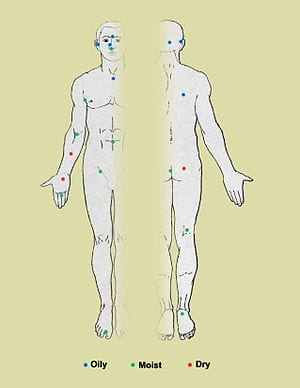
As doctors and scientists continue to make huge leaps in terms of genome sequencing and scanning devices, everything about your medical treatment is going to change.
As a child, you could always count on it, even after–especially after–you struck out playing T-ball, forgot your only line in the grade school play, and came home with chalk in your nose because you took the schoolyard dare. No matter what, your mom would hug you and tell you that you were special. Turns out, she was right.
Each of us is special and unique among the roughly seven billion humans on this planet. We are the walking, talking instantiation of the three billion instances of four nucleotides (abbreviated GATC) that constitute our unique genome’s DNA. Equally importantly, the interplay of that DNA with the environment and our individual lifestyles determines our susceptibility and predisposition to diseases.
Suppose you’re now middle aged and chest pains send you to a physician. You can’t change your genetic profile; it’s your parents most basic and lasting gift. However, that fondness for double bacon cheeseburgers and butter pecan ice cream, and an exercise regime that is all-too-frequently limited to wistful looks at the running shoes in your closet, both have consequences. That’s why your mother also warned you to eat your vegetables and wash your hands, not that you listened.
Today, your physician would run diagnostic tests, compare your current health and test results to that of a typical human of your age and gender, and treat your disease accordingly. Even though you’re special, today’s medical treatment is still generic. Therein is the problem. You are custom made, with a unique combination of lifestyle, environment, exercise patterns and food preferences. Although your nominal genetic profile is determined at conception, which genes are expressed (turned on) varies across organs and even with lifestyle and diet. Hence, it is not surprising that your reactions to a medical treatment may be quite different from another individual with the same test results.
That is all about to change. What biologist Leroy Hood has called P4 medicine–predictive, preventive, personalized and participatory–is tantalizingly near. The building blocks of that future are a deeper understanding of biological processes and continued advances in mobile sensors and big data analytics. Let’s imagine the future, one where you really are special.
Your physician will compare your current health to the best possible baseline. That would be you, but you in the best physical and mental condition of your life. Perhaps you were 25, at your optimum weight, exercising regularly, getting plenty of sleep, and eating a well-balanced diet (those vegetables again). Your physician would then tailor your treatment based on a detailed understanding of your genetic profile and gene expression, your current lifestyle and environment, and your body’s specific reactions to the prescribed treatment.
Continued advances in microfluidics, nanotechnology, microelectronics and robotics are rapidly reducing the cost of genome sequencing and metabolic characterization. Just a decade ago, the Human Genome Project spent over $3 billion to sequence one genome. Today, that same process costs just a few thousand dollars. In a few years, sequencing and metabolic analysis will be a routine diagnostic test costing just few hundred dollars. Everyone will know how their biological engine is working, and how it compares to that magical time when they were 25.
The Latest Bing News on:
Personalized medicine
- Global Companion Diagnostics Research Report 2024-2029: Innovations in Companion Diagnostics Boost Drug Development and Personalized Medicineon May 9, 2024 at 12:43 am
Factors such as the increasing importance of companion diagnostics in drug development, rising cancer incidence, and the growing adoption of targeted therapies are driving market growth.
- Biocartis and Merck to Collaborate on Improving Patient Access to Personalized Medicine in Middle East and North Africa (MEA) Regionon May 7, 2024 at 8:56 am
Biocartis (Mechelen, Belgium) announced an expansion of its collaboration with Merck Serono Middle East and Merck Saudi Ltd., both affiliates of Merck KGaA (“Merck”). The collaboration aims to improve ...
- Study finds personalized antibiotics, prebiotics, and probiotics combo may help treat IBSon May 6, 2024 at 8:00 pm
A study presented at the European Society of Clinical Microbiology and Infectious Diseases conference revealed that over a third of patients treated with a precision approach to post-infectious ...
- OM1 Launches Three New Products Powered by Patented AI Platform to Expedite Delivery of Personalized Medicineon May 6, 2024 at 6:00 am
OM1 Orion, OM1 Lyra, and OM1 Polaris powered by PhenOMTM – an artificial intelligence-powered digital phenotyping platform for personalized medicine and clinical research. OM1 is the leader in ...
- Can a personalized antibiotics, prebiotics, and probiotics combo help treat IBS?on May 4, 2024 at 11:00 pm
A pilot study suggests that a personalized combination of antibiotics, prebiotics, and probiotics may help treat the symptoms of post-infectious irritable bowel syndrome (IBS).
- Molecular Profiling and Companion Diagnostics: Where is Personalized Medicine in Cancer Heading?on May 4, 2024 at 5:00 pm
The goal of personalized medicine is to use the right drug at the right dose – with minimal or no toxicity – for the right patient at the right time. Recent advances in understanding cell ...
- How AI Revolutionizes Lab Tests: Faster, Smarter, More Personalizedon April 30, 2024 at 12:36 pm
AI revolutionizes lab diagnostics with faster, more precise, and personalized testing, significantly improving patient care and ...
- 'Despite promise, personalized medicine for head and neck cancers facing hurdles'on April 26, 2024 at 3:45 am
Improved efficacy: By identifying specific mutations driving tumour growth, personalized medicine allows for targeted therapies that have a higher success rate compared to ‘one-size-fits-all’ ...
- Readers respond to OTC antidepressants, personalized medicine, restoring trust in public health, and moreon April 12, 2024 at 5:00 pm
This essay supports my assertion that the fiscal issues that might hinder the usefulness of personalized medicine need to be dealt with at the same time as we continue our progress towards large ...
- Personalized medicine: We’re not there yeton April 4, 2024 at 5:00 pm
He predicted that in 10 years personalized medicine would allow physicians to employ “predictive genetic tests … so that each of us can learn of our individual risks for future illness and ...
The Latest Google Headlines on:
Personalized medicine
[google_news title=”” keyword=”personalized medicine” num_posts=”10″ blurb_length=”0″ show_thumb=”left”]
The Latest Bing News on:
Medical treatment
- I Had Cancer. My Treatment Was Eye-Opening About Addictionon May 9, 2024 at 1:31 am
I've had two different types of cancer in two years and in both instances, I was screened, diagnosed early, and ushered into care.
- Missouri man admits to strangling hospitalized wife to death because he couldn't afford her medical billson May 7, 2024 at 1:21 pm
Ronnie Wiggs is facing a second-degree murder charge after he allegedly killed his wife at a Missouri hospital because he couldn't afford her medical bills.
The Latest Google Headlines on:
medical treatment
[google_news title=”” keyword=”medical treatment” num_posts=”10″ blurb_length=”0″ show_thumb=”left”]










